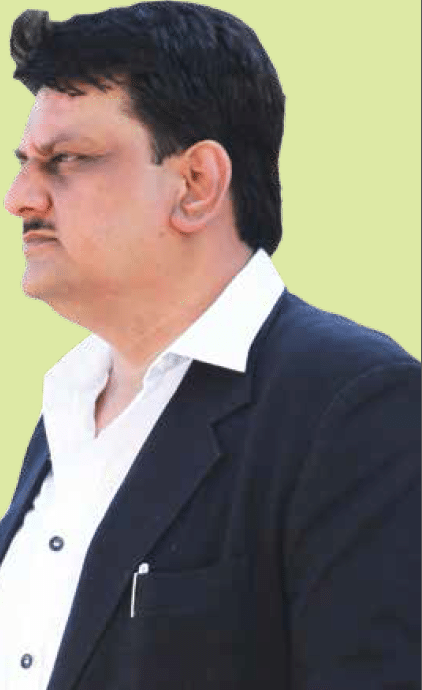

Director, Station-e Language Lab
By Dr Haresh Tank, Director, Station-e Language Lab.
Every time university rankings are announced, we harp on the way Indian university lag behind in research and we have not been able to establish world class institutions. This clamour translates into a few articles on the renowned universities with higher rankings in the world order and that is all. We have yet to unearth the root cause of why Indian universities fare so badly in the university rankings. Universities are entirely different from the culture of rote learning and rat race for numbers that we celebrate at the school level. Last year, we fared equally badly in PISA rankings. It is this kind of schooling that does not develop the key competences and skills that leads the young generation of the country to institutions of higher learning where they further the legacy of rote learning and top the universities. While all this happens, nobody asks the key question that if students score so many marks in the university examinations and secure such wonderful grades, why are they considered unemployable by the World Bank and the market at large? The university toppers, when they are asked to do the ‘real work’ in the companies, are exposed by their sheer lack of skills that are fundamental to the workings of the companies.
Our problem starts with the policy of higher education. It is sad to note that our policy begins and ends with increasing the GER. When GER increases, we feel we have triumphed. And what about the quality of higher education? There is a deep, meaningful silence over this at the policy level. In the era of internationalization of education, our policy papers do not reflect any learning from the best practices of the world class institutions of the world. For instance, in China, all the students whether science or arts have to compulsorily study and do well in English and Computers. They form integral part of their education because China knows that these are core skills in the 21st century. In India, even if English is offered, passing marks would do and hence, engineers and MBAs are speechless when facing an interview conducted in English.
At the level of policy, it is pertinent to note here that even countries like US and UK are also remodeling their education system because they have also lagged behind in the university rankings and they have been quick enough to respond to the fact that countries like Finland, South Korea and Germany have done remarkable work in terms of skilling their youth through higher education and this has led to the enhancement of students’ competencies and skills in a way that their students are readily employable and have the skills required for the real-life situations, unlike the rote learning we have cherished. Why do we need certain skills set at the end of the education process? We need certain skills set because the youth passing out of the system has a role to play in the economic processes of the country. Irrespective of the economic processes, our universities have continued to teach ‘subjects’ rather than skills that are required for the economic development of the country. The World Bank suggests that not only are these skills important but today they are crucial for ‘labour productivity’ and employers are looking for certain skills for their companies. Here’s the testimony from the World Bank:
As countries become richer and move up the value-added chain, the skills demanded will change. Bottlenecks will become more evident, constraining growth. Increasingly, labor productivity will depend on high-level cognitive skills (such as analysis, problem solving, and communication) and behavioral skills (such as discipline and work effort). These higher productivity skills are what employers now demand.
(Stepping Up Skills, The World Bank 2010, page 01)
The current focus of skill development has shifted to the learner and his/ her needs and expectations from vocational education and training (VET). To empower the working population, is it essential to start from the source, i.e., the learner. The “voice” of the learner is the focal point of the mission, without which an effective conclusion to and attainment of the final goal would be incomplete. India has the advantage of the ”demographic dividend” (younger population compared to the ageing population of developed countries), which can be cultivated to build a skilled workforce in the near future.
(Knowledge Paper on Skills Development in India, Executive Summary, page 2)
The European Framework of Key Competences
This framework was proposed in the Recommendation on Key Competences for Lifelong Learning adopted by the European Parliament and the Council in December 2006 after five years of work by experts and civil servants collaborating within the Open Method of Cooperation. It defines eight key competences:
>> Communication in the mother tongue
>>Communication in a foreign language
>> Mathematical competence and basic competences in science and technology
>> Digital competence
>> Learning to learn
>> Social and civic competence
>> Sense of initiative and entrepreneurship
>>Cultural awareness and expression.
(Key Competences in Europe: interpretation, policy formulation and implementation, The European Journal of Education, Page 03)
The question to be asked to the policy makers is, where are these skills mentioned above in the country’s policy of higher education? The reason why these skills are needed is that they are supposed to go into the field and do the ‘real work’ which would not be possible without these key skills. The youth in Indian universities studies the subject, perfects rote learning and then when required to go into the field and perform, is exposed. It happens because the policy does not clearly lay down the fact that universities are required to teach ‘skills’ rather than mere ‘subjects’. It is because the policy papers do not define the fact that the skills of the youth and the economic progress are inextricably linked. Countries like South Korea and Germany have thrived as economies because they have rigorously integrated skills into education policy and practice. But these case studies have not made an impression on policy makers in India and hence, the skills development policy in India is not only mono-dimensional as focused on vocational training but it does not belong to the 21st century as the contemporary world operates through the 21st century skills. These 21st century skills have unfortunately found no mention in our policy papers. As a result, no actual upskilling of students takes place at universities and the universities still languish in the previous century in theory and practice. The real world has moved on and it calls for complex skill sets in our youth and to inculcate it, innovative vision and effective implementation are inevitable.
Skills Development Centre (SDC): The Station- eModel
With the concerns of Skills Development in view, Station-e envisaged the concept of Skills Development Centre (SDC). It is a unique construct, aiming at upskilling the youth of the country. We have established several SDCs at various educational institutions – college and university campuses across the country. SDC serves as the training wing of the university, operated in a digital learning lab and powered by highly sophisticated technology. SDC comes with in-built training programs on soft and life skills, integral to the theme of skills development and empowering the youth. Customized to the core, these modules have astonishing transformation value as they produce remarkable results in virtually no time. The youth across the country have benefitted by the innovative Skills Development Centres and carved a niche for themselves in their chosen area of endeavour. What it means for a university is that it proves its worth, demonstrates its relevance through the skills training that the youth passing out of the system will be equipped with the best of skills and competencies required to operate in today’s world.
Skills Development Centre is a turnkey project and a vision product of Station- e. We wish to see an economically empowered India for which skills development of its youth is the key. For this, SDC is a small but significant endeavour at making a humble contribution for taking India to its rightful place in the 21st century world. It will not happen until we elevate the universities in terms of the way they operate and contribute to the empowerment of the youth for their role in this world. University rankings in India will improve the day we bring about policy shift and make Skills Development Centres across university campuses.
Dr Haresh Tank is Director, Station-e Language Lab. In the capacity of Director, he is in charge of conceptualizing and operationalizing initiatives with a special focus on Skills Development. He holds a doctorate in Statistics and is a noted Statistical Analyst. He was also nominated for Young Scientist Award. With a passion for teaching and contributing to the society, he continues to serve as Associate Professor in Statistics. As a Director, Station-e Language Lab, he has initiated several projects in the realm of Skills Development with Government and private companies. In addition, Dr. Tank is serving as Vice Chairman, CII, Western Gujarat Zonal Council.no





















